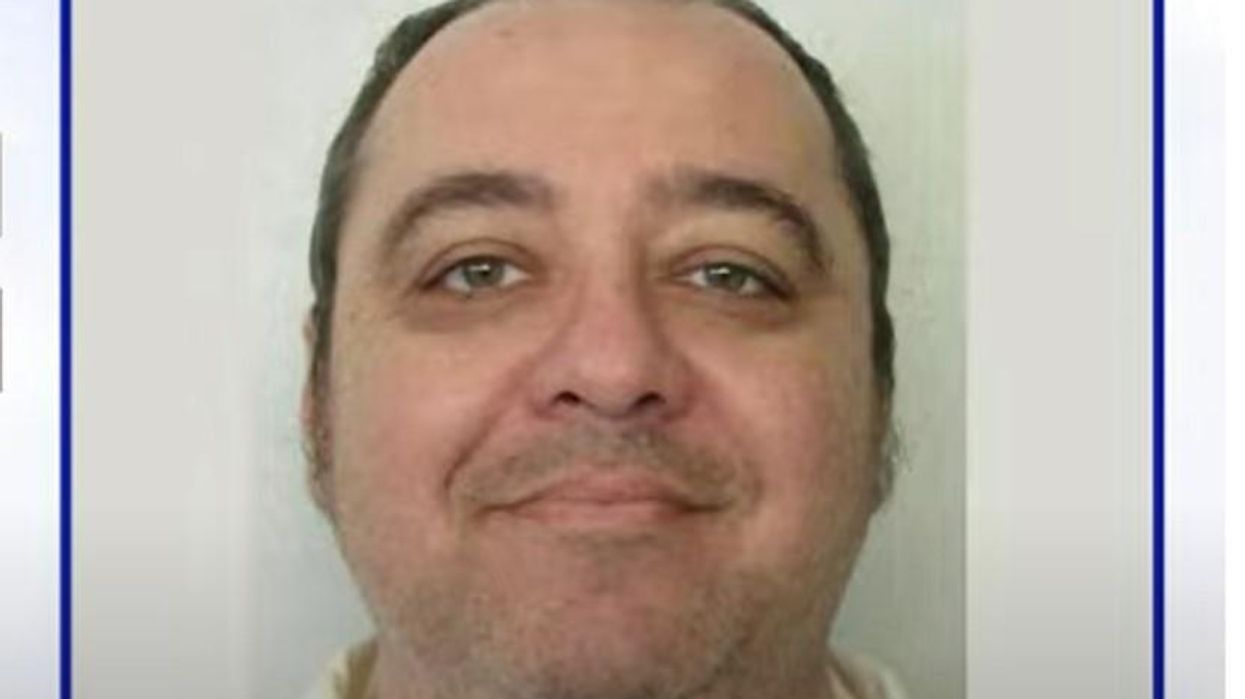
Screen shot of FOX54 News Huntsville YouTube video

A death row inmate in Alabama is still alive today after the medical team assigned to his execution failed to find a second vein in which to inject the lethal drugs.
Kenneth Eugene Smith, 57, was scheduled to die by lethal injection at 6 p.m. on Thursday at Holman Correctional Facility in Atmore, Alabama, for his role in the 1988 murder-for-hire plot that left preacher's wife Elizabeth Dorlene Sennett, 45, dead. Sennett was stabbed eight times in the chest and once on each side of her neck. Her husband, Charles Sennett Sr., the pastor of the Westside Church of Christ, hired Billy Gray Williams to kill his wife so that he could collect life insurance money, and Williams, in turn, hired Smith and John Forrest Parker to assist him. Williams intended to keep $1,000 for himself, and he offered to pay Smith and Parker $1,000 each for their participation in the murder as well.
Though Smith's 1989 conviction and impending death sentence were overturned in 1992, he was retried and convicted again in 1996. This time, the jury voted 11-1 to sentence Smith to life in prison, but the judge in the case overruled the jury and imposed the death sentence on Smith.
A 2017 change to Alabama law now forbids judges from overruling juries who wish to sentence convicts to life in prison rather than the death penalty. However, that law does not apply retroactively, so it did not affect Smith's conviction or his death sentence.
Beginning in August, Smith's lawyers attempted to forestall his scheduled execution for two reasons. The first was related to the 2017 law regarding judicial override, but the U.S. Supreme Court dismissed that reasoning.
Smith's lawyers also argued that the medical teams assigned to Alabama executions had already struggled to find suitable veins in at least two other executions. A third execution was then postponed in September for the same reason.
In July, the execution of Joe Nathan James Jr. was delayed three hours because medical personnel could not find a second suitable vein, which is required per state protocol. James was punctured repeatedly during that three-hour period.
Though James was eventually administered the lethal drugs, he was nonverbal and unresponsive by the time he was brought before witnesses. The death chamber in Alabama executions is not available to witnesses until the inmate has the necessary IVs already in place. Anti-death penalty groups called the execution "botched."
Then in late September, medical teams once again struggled to locate two veins in death row inmate Alan Miller, who is obese. At the time, teams were unable to locate veins after an hour of searching, and with the expiration of the death warrant looming, Miller's execution was postponed. The state has already moved to reschedule his execution.
In light of these recent issues, plus a botched execution in 2018, Smith's attorneys filed motions, first with U.S. District Judge R. Austin Huffaker Jr., and then simultaneous motions with the Eleventh Circuit Court of Appeals and the U.S. Supreme Court. Huffaker denied the motion to stay the execution, and on Wednesday, SCOTUS likewise denied the stay.
However, on Thursday, the Eleventh Circuit ruled that "factual allegations [in Smith’s complaint] show a pattern of difficulty by ADOC in achieving IV access with prolonged attempts." That ruling returned the motion to Huffaker, who rejected the motion once again. At 8 p.m., two hours after the execution was scheduled to begin, the Eleventh Circuit once again granted a stay. At 10:20 p.m., SCOTUS ruled 6-3 to overrule the Eleventh Circuit and permit the execution to proceed.
By that time, the DOC was in a bit of a bind. The death warrant for Smith expired at midnight, and officials had just over an hour and a half to perform all the necessary intravenous procedures. Within an hour, officials determined that they could not make the deadline and decided to cancel Smith's execution.
As of Friday morning, Smith's attorneys have not filed any new motions.
According to investigators, Smith admitted in a statement that those hired to kill Elizabeth Sennett had "agreed for John [Forrest Parker] and I to do the murder." Parker was executed for his role in the murder in 2010. Just before his death, he told Sennett's two sons, "I’m sorry. I don’t ever expect you to forgive me. I really am sorry."
Pastor Sennett, who orchestrated the crime because he was heavily in debt, committed suicide about a week after his wife's death because police had begun to suspect he was involved in it.